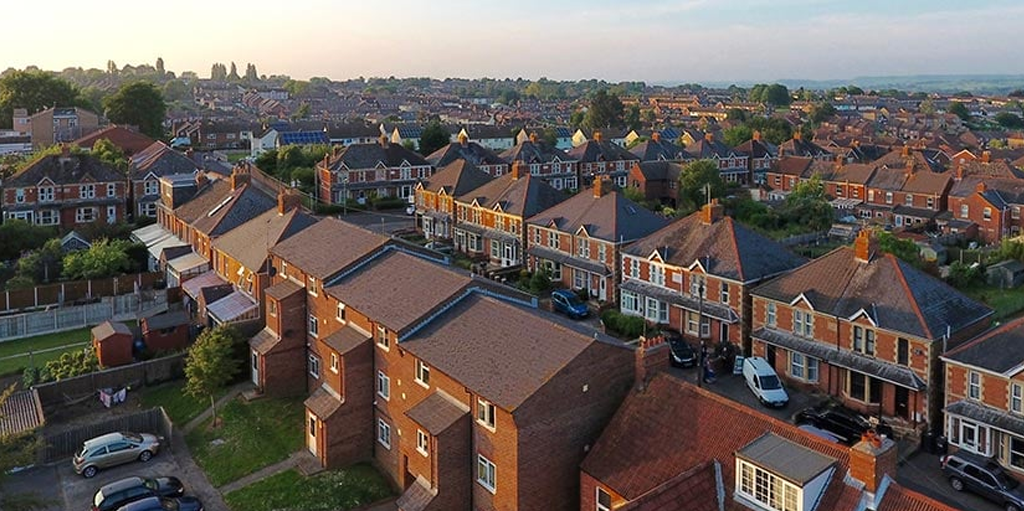In the United Kingdom, homeowners who have been enjoying the stability of a fixed-rate mortgage are now facing a common predicament – the end of their fixed-rate term. When a fixed-rate mortgage matures, borrowers often find themselves confronted with the prospect of higher interest rates, which can result in increased monthly mortgage payments. This can be a stressful and financially challenging situation for many homeowners. In this article, we will explore the factors contributing to increasing mortgage rates in the UK and provide insights into how individuals can navigate this situation to secure a cheaper deal.
Understanding the Fixed-Rate Mortgage Cycle
Fixed-rate mortgages have long been a popular choice among UK homeowners for their predictability and stability. These mortgages offer a fixed interest rate for a specified term, usually 2, 3, 5, or 10 years. During this period, borrowers are shielded from fluctuations in the Bank of England’s base rate or other economic factors that can influence mortgage rates. However, once this fixed-rate period expires, borrowers transition to the lender’s standard variable rate (SVR), which is often higher and subject to changes as per market conditions.
The Impact of Increasing Mortgage Rates
The most significant concern for borrowers coming off a fixed-rate mortgage is the prospect of paying higher interest rates. The UK’s base rate, set by the Bank of England, plays a substantial role in influencing mortgage rates. Over recent years, the base rate has seen a series of fluctuations, often remaining at historically low levels. However, as economic conditions change, there is an inherent risk that the base rate may increase. This can directly affect SVRs and, subsequently, the monthly mortgage payments of borrowers.
Factors Contributing to Increased Mortgage Rates
Several factors can contribute to the increasing mortgage rates in the UK:
- Economic Conditions: The state of the UK’s economy and global economic developments can significantly impact interest rates. A growing economy can lead to increased inflation, which, in turn, can drive up interest rates.
- Bank of England Base Rate: As previously mentioned, the Bank of England’s base rate is a critical factor influencing mortgage rates. Any decisions by the central bank to raise this rate can directly affect the interest rates offered by lenders.
- Market Competition: The level of competition among lenders also plays a role. When competition is high, lenders may offer more attractive rates to attract borrowers. Conversely, reduced competition can lead to higher rates.
- Lender Policies: Each lender has its own lending policies, which can result in varying rates for borrowers. Lenders may also change their policies and rates over time.
- Creditworthiness: A borrower’s creditworthiness, including their credit score and financial history, can influence the mortgage rate they are offered. Borrowers with a strong credit profile may secure lower rates.
Navigating Increasing Mortgage Rates
As the end of a fixed-rate mortgage term approaches, homeowners have several options to navigate increasing mortgage rates and secure a cheaper deal:
- Remortgaging: One of the most common and effective ways to secure a cheaper mortgage deal is to remortgage. This involves switching from your current lender to a new one with a lower interest rate. It’s essential to shop around and compare offers from different lenders to find the best deal. The competition among lenders can work in your favour, allowing you to secure a more favourable rate.
- Seek Professional Advice: Consulting with a mortgage broker or financial advisor can provide valuable insights into your options. These professionals have access to a wide range of mortgage products and can help you navigate the complexities of the mortgage market.
- Consider Fixed-Rate Mortgages: If you are concerned about potential interest rate hikes in the future, you can choose to refinance into another fixed-rate mortgage. This will provide you with a set interest rate for a specific period, offering the same stability you’ve enjoyed previously.
- Extend the Term: Extending the term of your mortgage can help reduce monthly payments, making it more affordable. However, this will result in a longer repayment period, potentially increasing the overall cost of the mortgage.
- Improve Your Credit Score: If your creditworthiness has improved since you first obtained your mortgage, you may be eligible for a lower interest rate. Taking steps to boost your credit score, such as paying down debt and ensuring all bills are paid on time, can lead to better mortgage offers.
- Overpaying: If your financial situation allows, consider making overpayments on your mortgage. Reducing the principal balance can lead to lower monthly payments and less interest paid over the life of the loan.
- Budget and Plan: Developing a comprehensive budget can help you better manage your finances during a mortgage rate increase. Having a financial plan in place will enable you to make informed decisions and keep your mortgage payments affordable.
See if Online Mortgage Solutions can get you a better deal
As fixed-rate mortgages in the UK come to an end, homeowners must prepare for the possibility of increasing mortgage rates. While this can be a challenging situation, there are multiple strategies that borrowers can employ to secure a cheaper deal and maintain financial stability. Whether through remortgaging, seeking professional advice, or exploring fixed-rate options, homeowners have several paths to mitigate the impact of rising mortgage rates. As with any financial decision, careful consideration and research are key to finding the most suitable solution for your individual circumstances. By taking proactive steps and staying informed, homeowners can confidently navigate the evolving landscape of mortgage rates in the UK. Give us a call today or fill out our online form to see if we can help you cut down your costs.
